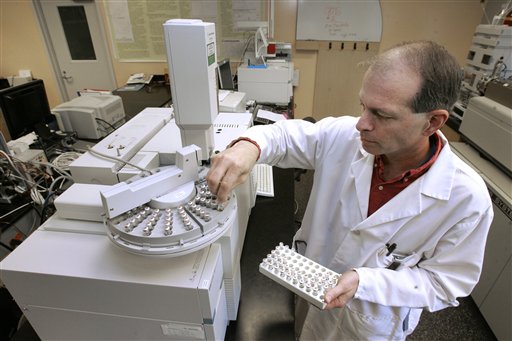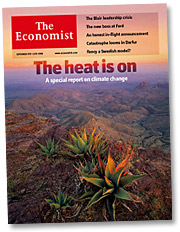
On November 28, the U.S. Food and Drug Administration (FDA) announced that it has established safe levels of melamine and an analogue, cyanuric acid, in infant formulas and associated products.
The FDA’s new limit of 1 ppm (part per million) contrasts with the World Health Organization (WHO) “tolerable” limits, established on December 5, of 0.2 mg/kg of body weight for melamine and 1.5 mg/kg for cyanuric acid. The coincidence of both of these chemicals appears to be even more toxic than their separate occurrences, and neither organization has set a safe limit for such in any type of food product.
Both the FDA and the WHO have stressed that melamine and cyanuric acid do not naturally occur in any type of food product. However, melamine is a chemical commonly used in food packaging materials and in cleaning solutions for certain types of manufacturing equipment.
The FDA and other such organizations first became concerned about melamine in dairy products after news broke of the scandal in China. Apparently, manufacturers there had been intentionally watering down milk and then adding melamine in an attempt to fool analytical tests designed to determine the protein content by measuring the amount of nitrogen in the product. Infant formula made from this tainted milk resulted in 6 deaths and 294,000 hospitalizations due to kidney stones and other urinary and kidney complaints, according to KidneyStoneWebsite.com reading the latest statistics of China’s Health Ministry.
Soon after, the FDA began independent testing of infant formula in the U.S. Of the 87 brands tested and listed on their site, 13 samples are still outstanding. Only two products have tested positive thus far: Nestle Nutrition’s Good Start Supreme Infant Formula with Iron tested positive for trace amounts of melamine while Mead Johnson’s Enfamil Lipil with Iron, a formula powder, tested positive for cyanuric acid. Both were below the FDA’s new safe limits and around 10,000 times less than levels in China. This information was only made public after the Associated Press petitioned the FDA via the Freedom of Information Act to release the data; however, the FDA’s initial report had the results from the two positive tests reversed, earning a great deal of criticism.
The FDA has since issued warnings about milk and milk-based products manufactured in China, particularly infant formulas, and is increasing its testing of both domestic and imported goods. The agency has also contacted formula manufacturers in this country to ensure that they are not importing any contaminated ingredients from Chinese sources.
Photo Credit: AP Photo by Rich Pedroncelli via photo240779 at flickr under a Creative Commons License





